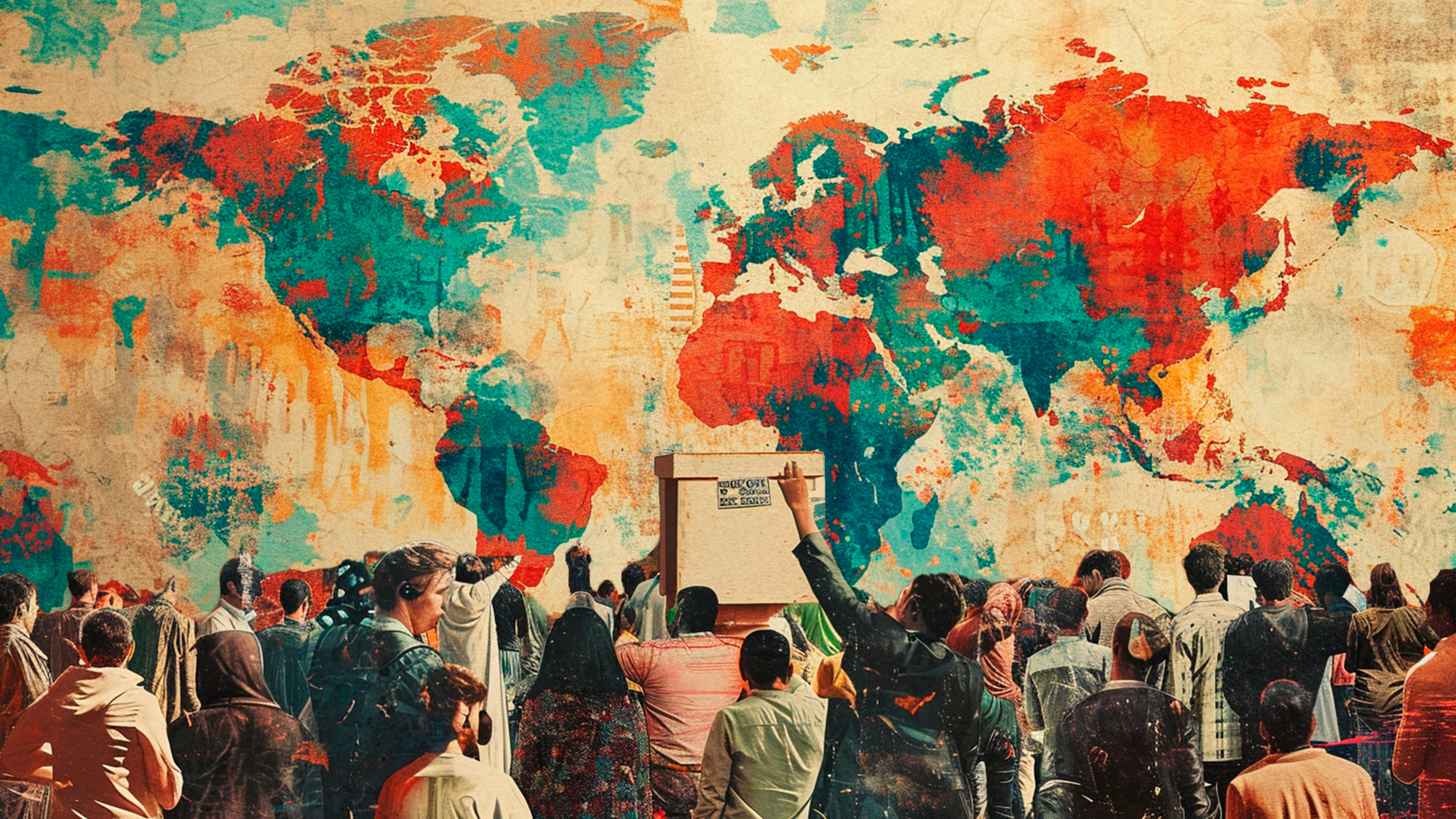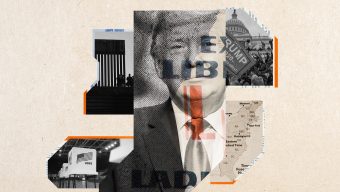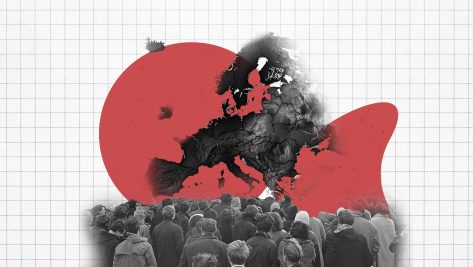A few weeks ago, in its annual preview of the new year, The Economist highlighted how important 2024 will be for democracy worldwide. The British weekly newspaper was one of the first voices to call attention to the fact that in the next 12 months more than 70 countries will head to the polls. By some accounts, this may be the first time that more than half the world population (more than four billion people) will cast a vote within the same year in a presidential, legislative, or subnational election.
Some analysts may repute the exact figure, but what is clear is that 2024 will be a “super-election year”: an unprecedented electoral cycle showcasing all types of systems and races in what may be the greatest exercise in political participation in human history. These will range from one-day contests to multi-week ones; from transparent and competitive elections to those marred by coercion and a lack of freedom and competition; from transcendental votes with the eyes of the world on them to marginal votes ignored by media (did you know, for example, that Bhutan held a parliamentary election last week?)
To begin with, it is already a big electoral year for the world when the world’s superpower elects its president (that is, every four years.) More so if international relations are in such a messy state, as they are nowadays. This is why we will be holding our collective breath on November 5, glued to our sofas as CNN’s John King goes through his “magic wall” and casting the results of the mother of all presidential elections in the United States. It will certainly be a long-distance race, one that increasingly grabs our attention, as highlighted by the Iowa caucuses that officially kicked off the process this week. Will Donald Trump return to the White House? It’s the question on everyone’s mind.
This will also be the year in which the world’s most populated country will go to the polls. India’s colossal democratic exercise will span two months, between April and May, and mobilize more than 900 million eligible voters (who are expected to grant Narendra Modi and the Bharatiya Janata Party a third consecutive term.) Second in size and scope to India will be the critical election to the European Parliament, taking place between June 6 and 9. With more than 400 million eligible voters in the EU’s 27 member states, the European election will elect the 720 MEPs, who will in turn select the new leadership of the EU Commission. Here, turnout tends to be relatively low (around 50%), although this year the potential advancement of populist and anti-European parties may mobilize the electorate. Will the EPP, S&D, and Renew hold the fort? The future of the European project is at stake.
Other key countries such as Indonesia, Mexico, South Africa, and the United Kingdom will also hold very important elections this year, each with their own particularities and, in most cases, confronting challenging domestic situations. And a special mention goes to the presidential election in Russia in mid-March. Rather than unveiling who will be the next occupant of the Kremlin (spoiler alert: expect an unopposed Vladimir Putin to clinch a fifth term), this election will take the temperature for what kind of support Putin is actually receiving.
Just in the first two weeks of the year, we already witnessed critical elections in Bangladesh (a country with a population of 170 million) and Taiwan (a hotspot for global affairs) – with outcomes that show how closely we will be monitoring elections throughout 2024 and how determinant they will be for global affairs. Each case will prove critical, yes, but we would do well to consider this busy electoral cycle from a broader perspective. Allow me to suggest four important aspects that deserve attention.
First, election outcomes will be critical for the future development of many of the major conflicts currently shaping global affairs. We mentioned the case of Russia, where the population’s support for the war in Ukraine, now entering its third year, will be put to a test as the conflict. Could the elections influence the war’s evolution? Recent independent polls suggest that the unmitigated support Putin has enjoyed in his war thus far is beginning to falter. March will be a good barometer for that. Along these lines, the recent and clear victory of William Lai and the Democratic Progressive Party in Taiwan will certainly mark Beijing’s policy in the region. What does this do to the feared potential conflict in the China Sea?
Needless to say, the situation in the Middle East will probably be 2024’s greatest international cleavage. It is, indeed, already playing big into the US campaign, with Biden increasingly questioned within his own party due to what is perceived as his continued blank check to the Netanyahu government for the massacre unfolding in Gaza. Yet, in this respect, it is more than disconcerting to consider what a Trump presidency would imply – his election would likely mean further escalation and a faster-growing divide between the so-called West and the rest of the world, as well as enhanced division within the Transatlantic community.
Our multilateral system is in the hands of the national governments we elect.
Second, elections in 2024 will be key to assessing the state of democracy worldwide, particularly in traditional democracies themselves. More than half of the world population may vote this year, in part because eight of the 10 most populous countries in the world will hold elections. Yet, many of these elections will not be free and fair processes. In addition to Russians, voters this year will include North Koreans, Chadians, and Belarusians. Thus, this year we should place special attention to the robustness of elections in consolidated democracies, where the quality of institutions and the trust of citizens in the system is quickly eroding.
Institutions like Freedom House, International Idea, and V-Dem have been documenting and voicing their growing concern about a democratic backslide. Not only are more countries becoming increasingly illiberal and joining the ranks of the so-called partial or flawed democracies, when not directly falling into plain autocracy (2023 was named as the year of coups in Africa, with almost the complete Sahel turning into a map of military dictatorships). In addition, well-established democracies are increasingly at risk. Many drivers like polarization, rising populism, and heightened misinformation are converging into an explosive cocktail that gave us a first warning three years ago with the dystopic assault of the US Capitol, something that seemed almost like science fiction and, moreover, was repeated in Brazil last year. So, watch closely how campaigns, voting and – maybe most important – the peaceful transition of power take place in democracies, particularly those that may be not as solid as we believe.
A third important aspect to look for in 2024 will be the true influence and effect of technology on politics. This is not new by any means, with concerns already present in public debate around, for example, voter manipulation, echo-chambering, cyberattacks, and results rigging. However, the growing reliance on technology throughout all parts of elections, ranging from campaigning and outreach to vote counting and verification, brings the associated risks to a whole new level. Past instances like the Cambridge Analytica scandal, disinformation campaigns, or alleged fraud could pale in comparison to what we may soon witness due to technologies like artificial intelligence. They make it cheaper and easier to influence elections and manipulate the public, putting a whole new world of risk before us.
Fourth and final, the outcome of all these elections will shape the international community’s capacity to respond to many global challenges beyond the aforementioned dimension of peace: climate, health, development… At the end of the day, our multilateral system is in the hands of the national governments we elect, which are the ones who sit at and stir the international institutions we have created to manage our global commons: the United Nations and its many agencies and programs, the World Bank and the IMF, the various regional development banks, and so on.
Elections have the ability to turn around a country’s position on global fora, transforming spoilers into constructive players. However, they can also move in the opposite direction. We saw it in 2023: just as we celebrated the return to a pro-European government in Poland, the extreme right arose as the most-voted option in The Netherlands, an EU founding member. These days we need leaders who are capable of building bridges, with the vision and drive to transform our global governance mechanisms – and it is elections that will determine who we entrust with such responsibility.
Therefore, brace yourselves for an intense super-election year – the electoral outcomes will resonate far beyond the borders of their specific countries. The next few months will be crucial in tackling many of the immediate crises and longer-term questions that face humanity. Will we fall further into the spiral of violence, confrontation, and destructive competition that has taken hold in the past few years, or is there still hope to reverse course? Voters around the world will tell us.
© IE Insights.











